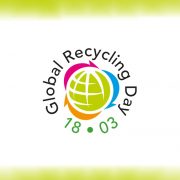COVID-19: Update by BIR Member National Associations: The World Moves Tentatively into Reopening Phase
Over the course of the COVID-19 pandemic, BIR has sought to collate expert feedback on the impact of the virus around the world, with specific regard to how it is affecting the recycling industry. This latest update has been sourced from the world recycling organization’s network of member national associations. Please also check our related comparative table providing a global overview on the recycling industry’s classification (for members only) as an essential industry.
Since China began to reopen its economy in mid-April, several cities – including Guangzhou, part of Beijing, Liaoning and Heilongjiang – have reported a second wave of the virus. Zero cases have been recorded over recent days in Hong Kong, Taiwan and Vietnam, while a declining number of infections has been registered in Malaysia, Thailand and the Philippines. These places are likely to relax their restrictions in the coming weeks. The number of confirmed COVID-19 cases on the Chinese mainland dropped to below 1000 on April 23, according to the national health commission. At a meeting of its main epidemic response group the previous day, Chinese authorities called for an increased capability and a wider range of testing, including large-scale nucleic acid and antibody testing to cover key groups and locations where people would gather to resume work and production.
The pandemic has taken a heavy toll on the country’s economy: output shrank by 6.8% in the first quarter of 2020, the lowest reading in decades, with industrial production, infrastructure investment and retail at an all-time low. Taking the plastics industry in China and South East Asia as an example, demand for recycled materials is at only 30-40% of pre-pandemic levels amid a slowdown in volumes requested by the plastics manufacturing industry and cancellation of overseas orders. Recycled pellets are not selling well as a result of the oil price crash which reduced prime prices to record lows or their lowest levels for years. Poor sentiment and uncertainty over the economic outlook are dominating this market. Plastics recyclers face the challenge of low selling prices for their materials, while suppliers are unable to reduce their own selling prices owing to the high cost of shipping and the impact on availability of the lockdowns in exporting countries. The situation will improve only when all countries lift their lockdowns and resume their economic activities as before the COVID-19 outbreak. In late April, there was a major shift in how US states framed their response to the pandemic, with the focus moving from a public safety-led perspective to an economic recovery perspective. State governors have announced coalitions on the West Coast as well as in the Midwest, Northeastern and Southern regions to co-ordinate the lifting of COVID-19 restrictions. Thirty-five US states have active stay-at-home orders with closures of non-essential businesses, while 14 specifically identify recycling as an essential/critical industry. Six of these orders target only retail operations (and may include retail recycling operations). At the time of writing, seven states are currently in the reopening phase – namely Alaska, Connecticut, Minnesota, Mississippi, Montana, South Carolina and Vermont – and have included health and safety requirements for businesses in their reopening plans. Problematically, there remains a patchwork of restrictions by city or county orders that remain in effect. Further illustrating the mixed picture, several of the 14 US states with stay-at-home orders expiring on April 30/May 1 have indicated that they will now switch to a reopening phase whereas others have extended their orders beyond April. Once a state decides to begin easing restrictions, the reopening process is likely to be a slow reversal of the initial shutdown order in mid-March, combined with the implementation of the types of safety mandates currently seen for essential businesses, including face coverings, gloves, sanitation/Lysol wipes, social distancing, occupancy limits, specialized hours and accommodation for high-risk workers.
Businesses’ operating practices are being dictated by the executive branch. Initially, rules involved a simple extension of personal protective equipment (PPE) requirements but now cover operating hours/business practices and entail revocation of operating licences if violated. Meanwhile, workers’ compensation is becoming an issue as governors begin to utilize executive orders to deem any COVID-19 exposure to essential business workers as presumed employment hazard. Brazil is aligning itself broadly with the USA in terms of its measures for handling COVID-19. Efforts are being made to persuade the Brazilian government to recognize recycling as an essential activity.
Canada’s healthcare system was able to cope with the COVID-19 peak; new cases and hospitalizations are now declining across most provinces. In its guidance to provinces, the country’s federal government has included recycling among operations essential to the manufacturing supply chain; therefore, recycling facilities in all 10 provinces can remain open if companies choose this option. Most have decided to remain open but with reduced operations because their industrial suppliers are closed; some have suspended public transactions. Volumes are down across the country and most facilities have cut staff accordingly. All businesses are required to follow physical distancing and stringent cleaning practices.
A wage subsidy programme is available to all businesses which are continuing to pay employees over the period from March 15 to June 7. Any private corporation, non-profit organization or registered charity that saw a revenue reduction of at least 15% in March 2020 and 30% in the ensuing months is eligible for a 75% wage subsidy (up to a weekly maximum of C$ 847 per employee). The programme covers three four-week periods; once a company is found to be eligible for a specific period, it will automatically qualify for the next one. Companies cannot make claims for employees who are laid off and do not receive a salary for 14 or more consecutive days in any given period. Applications opened on April 27.
In Europe, and after many weeks of lockdown, the government in Italy is now relaxing rules based on a four-level table of risk entailing a cross-evaluation of integrated risk and the level of social aggregation in every type of activity. The strategy involves step-by-step opening with a time slot of 14 days, allowing infection checks to be made and analysed before moving on to the next step. Safety protocols will be fundamental to the reopening phase and will include face coverings, gloves, sanitary solutions, temperature checks on employees and social distancing, as well as time balancing relating to physical presence in offices and workspaces. Italy’s metals sector is scheduled to reopen on May 4. Recycling units have remained open throughout the crisis owing to their crucial role in waste management. However, activity levels are low and most companies estimate that almost 70% of business has been lost during this period; however, they also expect this figure to improve once the metals sector resumes. Currently mired in bureaucratic difficulties, financial aid to support liquidity is expected to be in place by the end of May at best. This is worsening problems associated with outstanding payments and lack of new invoicing. The recycling industry has sustained high costs through guaranteeing to stay open during the lockdown despite very low levels of business. ASSOFERMET, UNIRIMA and ASSORIMAP – Italy’s three national associations covering the entire range of recycling commodities such as metals, plastics and paper – have drafted a letter to the government to reinforce this message and to call for a change of mindset now that the COVID-19 crisis has demonstrated the essential nature of recycling and of waste management as a whole. After more than 40 days of lockdown, the Spanish government is also looking to relax rules imposed on non-essential activities/businesses, adopting a similar step-by-step reopening strategy as outlined above for Italy. Employees can use public transport if they have no private means to reach their workplace. All essential recycling services have been allowed to remain in operation during the state of emergency, but business has been slow. Financial aid in the form of, for example, subsidies and tax moratoriums have been offered to companies to help alleviate the effects of the crisis. Retail businesses are expected to reopen on May 11 so long as all measures are taken to prevent further infections. This will provide small and medium-sized recycling companies with a further source of supply. Recycling organizations have been active in defending the interests of their member companies. For example, Catalonian recycling association Gremi de Recuperació has been providing legislative updates, helping to find best options to avoid losses and calling on administrators to adopt measures to soften the impact of the crisis such as through offering tax discounts. In France, some 73% of recycling centres have remained open to receive materials. It has been estimated that April turnover losses within the recycling sector were around 50%, with similar levels expected for May. The drop-off in activity levels are put at: 80% for metals; 30% for paper and plastics; and 10% for glass. The textiles recycling sector has witnessed a drop in collections and is facing a major threat owing to constraints on exports. Specific to recovered paper, mills are expected to encounter small shortages in May despite ongoing collection and sorting activities. For plastics, meanwhile, the recycling market has been hit by the falling oil price and a reduction in demand.
The UK is still in lockdown and there remains a mixed picture on trading. About half of all metal recyclers closed fairly swiftly after the lockdown was implemented; some have since reopened a small proportion of their sites but are finding trading to be only around 40% of pre-COVID-19 levels. Some are still managing to export to China.
The government has made significant financial interventions to support businesses and individuals affected by the crisis. The total cost of bail-outs exceeds £100 billion. Nevertheless, with COVID-19 battering demand, UK factories have cut jobs at the fastest rate in decades.
An announcement is expected on May 11 about how lockdown restrictions will be eased, probably from the end of the month. But even once the government’s five key tests for easing are deemed to have been met, it is expected that significant restrictions will still be applied to social gatherings such as sporting events or in cinemas, theatres and restaurants/pubs. Restrictions are being enforced by the police, with powers to arrest and to impose fines of £30-1000. As noted previously, the British Metals Recycling Association (BMRA) secured confirmation that metal recyclers would be included in the designation of the waste industry as key workers, which has enabled all our members to continue trading if they choose to do so. However, a number of police officers around the country have wrongly challenged metal merchants, sometimes instructing them to close or for drivers to return to their yard premises. As a result, the BMRA wrote to the Chief Constable of each of the 43 police forces in the UK, urging them to advise their officers of the classification of metal recyclers as key workers. We are now hearing of far fewer interruptions. The government’s Department for Environment, Food and Rural Affairs has already issued an instruction for the reopening of local authority household waste and recycling centres. However, local authorities are resisting this on the grounds of staff shortages and lack of protective equipment. Reopening could provide a minor boost for some larger metal recyclers with contracts to collect the household metals gathered at these sites. The BMRA has advocated the reopening of these centres to counter increased dumping of large domestic appliances and to avoid the fire risk posed to metal recyclers by householders concealing small waste electrical and electronic equipment in bins collected from homes.
The UK’s Environment Agency continues to carry out regulatory visits to sites but is increasingly turning to desk-based compliance activity. It has issued communications acknowledging that many companies will be suffering staff shortages and therefore are unable to fully comply with environmental obligations for reasons beyond their control. This is encouraging, but the BMRA continues to seek concessions and assistance from the government and regulators wherever possible. The Environment Agency has sought to justify its continued levying of licence fees by pointing out that it relies on charge income to carry out its work. Since UK banks and other lenders have effectively been instructed to offer three-month payment holidays to borrowers on mortgages, credit cards and loans, the BMRA is considering whether it might be feasible to seek similar concessions – or extensions – on licence fees, for example.
The plan prepared by the Polish government for loosening Coronavirus-related restrictions will be executed in four phases. The first of these, beginning on April 20, involved lifting the ban on movements in public spaces while maintaining social distancing, as well as increased access to shops. From May 4, there is a further relaxation of the rules but mandatory face-covering and social distancing remains in place for all public spaces. For April and May, the drop-off in volumes in Poland is expected to be more than 30% for ferrous scrap, 50% for non-ferrous metals and over 20% for recovered paper. Virus-related production stoppages at factories have led to a loss of volume; post-production scrap from the troubled automotive sector has suffered a decrease of 70% over the last four weeks. Depending on who is receiving the scrap metal, production remains at around 70%. Raw material prices are stable and the market is gradually rebounding from a period of greater stagnation around Easter. Small scrap collection points are still closed. Elsewhere, the Netherlands has experienced logistics problems through a shortage of drivers as well as a drastic decrease in buyers of plastic recyclers’ end product. And from Russia come reports of problems in procuring scrap, particularly from the private sector and the public. Countries in the Middle East remain in lockdown to try to control the spread of the COVID-19 virus. Most of them have been sufficiently successful that some are now starting to ease their restrictions and reopen their economies, including the UAE, Saudi Arabia and Jordan where people can move more freely during daytime and where all industrial and commercial sectors can resume their activities. At the same time, social distancing must continue to be observed while manpower allowed on premises is reduced and strict health & safety controls apply.
Recyclers have returned to operation but the flow of scrap is less than 20% of the norm. All ports are operating normally and exports are continuing to move to countries that can accept material. Indeed, the main issue for recyclers in the Middle East is the situation in the key market of India where a lockdown remains in place and where shipping lines and container freight stations have been refusing to adhere to the Indian government’s order to provide free demurrage and detention. From India itself, it is reported that logistics systems have been severely dirupted as a result of the pandemic and associated production/consumption centres have been affected. Traders, importers, exporters, port operators, shipping lines and transporters are all facing huge challenges to continue their businesses given lower trading volumes and cash-flow issues.
The Inland Importers & Consumers Association (IICA), along with other bodies such as the Material Recycling Association of India (MRAI) and the All India Non Ferrous Metal Exim Association (ANMA), have made very strong representations to the Indian ministries of finance, commerce, shipping and industry. Furthermore, technical presentations – including survival-related data – have been put before experts in the logistics department of the transport & shipping ministry.
The government was sympathetic to the views expressed and granted major relief. Both for break bulk and containerized shipping, all detention and demurage charges were made zero for the lockdown, with a grace period of 30 days if needed. Unfortunately, leading shipping companies such as MSC, CMA CGM, APL, Maersk and Hapag declined to waive detention costs. However, following a video conference involving all stakeholders on May 1, the government’s Director General of Shipping has ordered everyone to obey DG Notification Nos. 7, 8 and 11 calling for the waiver for the period to May 3 inclusive. This will provide substantial relief for Indian importers and for exporters around the world selling into India.
Source: BIR – Bureau of International Recycling (Brussels, 4th of May, 2020)









